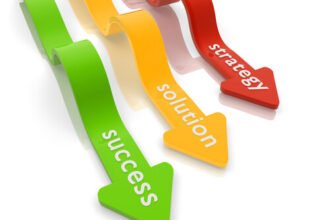The internet of things (IoT) has put far-reaching possibilities before us, but can we utilize the possibilities in understanding initially unpredictable trends? As our computers get better in connecting us to global news and trends—from common Google searches to up-to-date Twitter feeds—we may be moving closer to a time when our computers will be even more equipped to help us trade stocks better.
In the previous years, the human brain figured out everything—they carried research, did all the necessary analysis, and came up with a possible recommendation for improving marketing statistics. They also conducted intricate surveys in a bid to learn more about markets and businesses. In stock trading, in particular, they watched the market and carefully established the most opportune times to buy or sell.
Today, humans still play big roles in the execution of these operations but they continue to play a diminishing role as big data concept enters the picture. Currently, we have insights on virtually everything from how people spend their time on social media to what influence their purchase patterns.
And more recently, this information is shifting away from business topics and is fast being adopted in stock market operations. However, there are a few unanswered questions: how much is big data capable of seeing? Will it overtake humans in the prediction of the best stocks to buy and sell?
What is Big Data?
By definition, big data simply describes a large volume of both structured and unstructured data that inundates business operations on a daily basis. Generally, it is not the amount of the data that’s important but what traders do with the data—it should be analyzed for deeper and better decision insights and strategic market moves. It can, for instance, help you establish whether the market is growing, stagnant, or declining, which in turn assist you to take appropriate action to accommodate the market moves.
The Growth of Algorithms in the Global Share Markets
The decision to buy or sell currently relies heavily on algorithms. In fact, it has infiltrated the stock market and provides the traders with calculated suggestions on whether the markets are moving up or down. Data analysts can then use such suggestions to make calculated moves and recommendations.
Mitsubishi UFJ Morgan Stanley Securities Co.’s senior equity strategist, Junsuke Senoguchi, created such an algorithm—a robotic device that can predict and suggest certain investment moves based on tolerance risks and client’s goals. Senoguchi has used the robot multiple times in his trading endeavors and has realized a considerable amount of success.
Senoguchi’s tool is just the proverbial tip of the iceberg when it comes to devices and tools that can use big data and algorithms to predict the future of the stock market. Google Trends, for instance, is an another versatile programme that has shown a lot of potential in helping beginner investors not only understand but also succeed in the volatile stock market. What’s more, websites such as CMC markets have a plethora of up-to-date information on market trends and can significantly aid your stock market predictions.
Potential Flaws
Algorithms will never render wild success with every application—like other innovations, they harbor potential flaws that can make even the most experienced traders skeptical. Nonetheless, this doesn’t declare them useless.
In particular, the tools are invaluable for people who are starting out on stock trading. Penny stocks investments, for instance, can benefit immensely from big data and algorithms. Because they are infamously volatile, a decent predictor of the nature of the market at any particular time and for each investment can go a long way in helping beginner traders achieve more trading successes than failures.
Again, though these algorithms aren’t perfect, the data is getting startlingly more accurate with the passage of time. This implies one thing: the growing volumes of data at our disposal and the unprecedented but unexplored approaches there are to take advantage of it.
Staying ahead
Overall, though he big data may not predict the future of stock market just yet, there’s no bout that they have significantly advanced. As highlighted, they remain invaluable for beginning investors and it will never come as a bolt from the blue if data collection played even bigger roles in stock market prediction and exchanges in the coming years.







